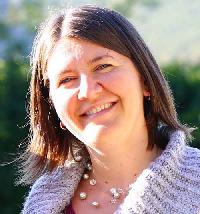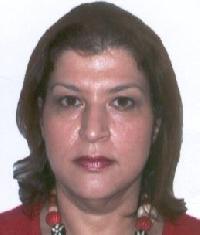| Pages in topic: [1 2] > | Poll: How long have you studied your source language (formal education)? Thread poster: ProZ.com Staff
|
|---|
This forum topic is for the discussion of the poll question "How long have you studied your source language (formal education)?".
View the poll here
A forum topic will appear each time a new poll is run. For more information, see: http://proz.com/topic/33629
| | | | Tim Drayton 
Cyprus
Local time: 20:02
Turkish to English
+ ...
| no formal study | Apr 29, 2007 |
I have had no formal study of my main source language, Turkish. I learnt the language during a very long period of residence in Turkey. I learnt the language through my own efforts and this involved a great deal of work. I ran my own business in Turkey for a few years, and this certainly gave me a good insight into commercial language.
I was later able to validate my skills when I sat, and passed, the IoL Diploma in Translation examination.
My academic background is in linguistics, w... See more I have had no formal study of my main source language, Turkish. I learnt the language during a very long period of residence in Turkey. I learnt the language through my own efforts and this involved a great deal of work. I ran my own business in Turkey for a few years, and this certainly gave me a good insight into commercial language.
I was later able to validate my skills when I sat, and passed, the IoL Diploma in Translation examination.
My academic background is in linguistics, which helps a lot. ▲ Collapse
| | | | | Real Life Experience Often Just As Good If Not Better than Formal Education | Apr 29, 2007 |
Although I formally studied Spanish (my primary source language) from the time I was 11 years old in middle school, high school and then college, I truly believe that as far as languages are concerned, the best learning experience is real-life learning...immersion.
I was an exchange student in Spain during my final year of high school and to tell you the truth, I learned more from my friends when skipping a few classes to go play cards at the local café than taking notes non-stop ... See more Although I formally studied Spanish (my primary source language) from the time I was 11 years old in middle school, high school and then college, I truly believe that as far as languages are concerned, the best learning experience is real-life learning...immersion.
I was an exchange student in Spain during my final year of high school and to tell you the truth, I learned more from my friends when skipping a few classes to go play cards at the local café than taking notes non-stop in class, talking with my beauty-shop host mom and all of the señoras while they were getting their hair done rather than reading gossip magazines or studying grammar, going out with my Spanish boyfriend who ten years later became my husband instead of reading novels in Spanish about Spanish relationships, having a baby in a Spanish hospital and then taking her to her Spanish doctors rather than studying up on medical terminology. And I could give hundreds of more examples of the benefits of immersion.
I have many friends who have studied Spanish for years in school, college and graduate school, but who still do not really understand what they are reading when it comes to anything slightly colloquial or culturally sensitive. And trying to memorize vocabulary from a book is nothing like internalizing it by being surrounded by contextual repetition.
Languages are to be lived. ▲ Collapse
| | | | John Cutler 
Spain
Local time: 19:02
Spanish to English
+ ...
| Another minority report | Apr 29, 2007 |
The poll question emphasized formal education. At this point in the poll results, I find myself in the, currently, 3.9% percentile who have formally studied their source language for less than 2 years. What I explain below is NOT meant to be taken as any sort of criticism of formal education. It’s just another “minority report” like Tim's and Chanda's.
I came to Spain when I was 24 without ever having studied the language formally. Through trial and error I discovered a few of... See more The poll question emphasized formal education. At this point in the poll results, I find myself in the, currently, 3.9% percentile who have formally studied their source language for less than 2 years. What I explain below is NOT meant to be taken as any sort of criticism of formal education. It’s just another “minority report” like Tim's and Chanda's.
I came to Spain when I was 24 without ever having studied the language formally. Through trial and error I discovered a few of the informal ways of learning a language.
I’m sure there are others as the posts above have explained but here are a few “informal” educational methods that have worked for me:
1. Total immersion.
If you live in your source language country, avoid a language ghetto situation i.e., don’t live with other people who speak your language. At first everything will sound like, “blablablablablabla” but eventually you begin to discern words and even though you don’t understand what is being said, you realize that those odd sounds coming out of people’s mouths are actually words. Now the trick is to just zero in on single words and start building your vocabulary.
2. The parrot method
Listen and repeat, listen and repeat, listen and repeat. Just a tip: choose carefully who you listen to though. I chose certain people who I respected and saw that they spoke the language well. I listened to them when they spoke and repeated the language structures they used; they became my unwitting accomplices in the learning process!
3. Make a fool of yourself method.
Just a word of warning, this method is not for the faint of heart. Once people have laughed themselves silly at something you’ve said wrong, you NEVER forget the word or expression you used incorrectly. Best memorization method ever!
4. Read and watch TV, films, etc.
Documentaries are good and so are shows produced in the source language country (you hear the “real” language written by native script writers). If you watch a translated show it also helps you to learn to back translate into what you think they were really saying in the original version.
5. Teach your native language. Lazy students won’t look words up and will always ask you for translations. If you look it up with them in the class, it’s a great way to learn translation method and get paid at the same time!
6. Get married to someone from the source language country: another benefit to married life is that you have a live-in teacher.
7. Have kids in the source language country: You get to see how they learn and continue learning with them. Someone is always correcting children when they make mistakes while learning their mother tongue. If you’re around when it happens, you get to be a “passive learner”.
8. If you do have the opportunity to “formally” study your source language, make the most of it! Take classes if you can. They certainly accelerate the learning process. In my free time I’ve taken classes of Catalan and preparation for the IoL exam.
[Editado a las 2007-04-29 10:53]
[Editado a las 2007-04-29 10:55] ▲ Collapse
| | |
|
|
|
Amy Duncan (X) 
Brazil
Local time: 14:02
Portuguese to English
+ ...
| What a surprise! | Apr 29, 2007 |
I thought I'd be the only self-taught one, so it's great to find out that there are others like me. I have been living in Brazil for around 10 years and have never studied the language formally. I bought a grammar book, and then just started speaking. Living in the country of my target language is very helpful, because I speak Portuguese most of the time.
Amy
| | | |
I chose N/A because I have more than one source language
German I studied 12 years long, English 10 years and Russian 5 years.
| | | | | Formal and informal studies | Apr 29, 2007 |
I studied my source language formally from elementary school, all the way long until my Master's.
At present, I continue to study it informally by reading articles, texts, and different books related to the language. In some cases, just for fun, I read grammar and style-related books as well as dictionaries.
That is one of my hobbies.
Despite this is not asked in the poll, I am constantly reading grammar books and consulting dictionaries, when I am preparin... See more I studied my source language formally from elementary school, all the way long until my Master's.
At present, I continue to study it informally by reading articles, texts, and different books related to the language. In some cases, just for fun, I read grammar and style-related books as well as dictionaries.
That is one of my hobbies.
Despite this is not asked in the poll, I am constantly reading grammar books and consulting dictionaries, when I am preparing my university classes. ▲ Collapse
| | | | | What he said. | Apr 29, 2007 |
John Cutler wrote:
The poll question emphasized formal education. At this point in the poll results, I find myself in the, currently, 3.9% percentile who have formally studied their source language for less than 2 years. What I explain below is NOT meant to be taken as any sort of criticism of formal education. It’s just another “minority report” like Tim's and Chanda's.
As usual, I was composing my comment as I waited for the forum page to load. But John said it all. I didn't quote his whole list, but he's spot on.
Formal classes give a great foundation for language learning, and I wish I could have taken Spanish in school. Only French was offered; I took two years and still hope to learn it some day. Meanwhile, those two years of high school French (1963-1965) helped me learn Spanish.
I began translating regularly in 1984; I took my first formal Spanish class (Advanced Spanish Syntax) in 1998, as part of my M.A. studies in Translation.
How did I learn Spanish, then? Marrying a Mexican and moving to Puerto Rico, added to a natural flair for language and excellent grade-school English grammar teachers.
| | |
|
|
|
Sheila Wilson 
Spain
Local time: 18:02
Member (2007)
English
+ ...
| Kids are really useful | Apr 29, 2007 |
[quote]John Cutler wrote:
7. Have kids in the source language country: You get to see how they learn and continue learning with them. Someone is always correcting children when they make mistakes while learning their mother tongue. If you’re around when it happens, you get to be a “passive learner”.
I moved to France with a 10-year-old son via 2 years in The Hague. In Holland I found it very difficult to learn Dutch as everyone wanted to practise their English - they couldn't understand why I wanted to learn Dutch!
In France, no-one spoke much English and certainly not all the village kids my son made friends with. I was forced to converse with them (and they're much more difficult to understand than adults) and their parents. Having a kid really made us a part of the community. I've seen people arrive and completely fail to integrate because they either can't or won't learn the language. Mind you, some seem happy driving RHD cars, using UK plugs, playing cricket, using Ryanair like a bus service etc. Not for me, I can tell you!
By the way, I studied French from the age of 8 (part of an 'experiment') until A level but I was totally unprepared for the French spoken in the South of France. They use a lot of local words and even when they use standard French they have a decidedly odd accent, adding extra syllables everywhere and even pronouncing most final 's's (masss, Fréjusss etc). Plus there are all those words you're not taught at school, and not just what to say when someone crashes into your car! I struggled through a teaching job interview, wondering what 'bouquin' meant but not liking to ask, then asked what books they used! I got the job though!
[Edited at 2007-04-29 19:26]
| | | | Rolf Kern 
Switzerland
Local time: 19:02
English to German
+ ...
In memoriam | I have voted N/A | Apr 29, 2007 |
I have never "studied" my source languages English and French.
We had French compulsory in the 7th to 10th year of school. The rest was self-teaching in practical work.
We had English in the 10th year of school. As a student, I used to listen (in the background) to Radio AFN, where I learned a lot. After the Technical University I worked with a Canadian company in Zurich where English was the official language. Even Swiss people spoke English to each other!...
| | | |
No formal education in Italian whatsoever, but like John and others, I picked it up using the "total immersion" method (or as I call it, "getting thrown in at the deep end"). I made sure that my grammar was up to scratch by working through a couple of exercise books with answers in the back.
I agree with most of John and Chanda's comments, although unlike Chanda I did find reading in Italian very useful in picking up vocabulary and the formal structure of the language.
I'd al... See more No formal education in Italian whatsoever, but like John and others, I picked it up using the "total immersion" method (or as I call it, "getting thrown in at the deep end"). I made sure that my grammar was up to scratch by working through a couple of exercise books with answers in the back.
I agree with most of John and Chanda's comments, although unlike Chanda I did find reading in Italian very useful in picking up vocabulary and the formal structure of the language.
I'd also finally like to pay tribute to all the shop assistants, greengrocers, ironmongers and so on who patiently bore with me when I insisted on speaking (very bad) Italian. ▲ Collapse
| | | | John Cutler 
Spain
Local time: 19:02
Spanish to English
+ ...
| Swim or sink | Apr 30, 2007 |
Marie-Hélène Hayles wrote:
No formal education in Italian whatsoever, but like John and others, I picked it up using the "total immersion" method (or as I call it, "getting thrown in at the deep end").
I was going to use the imagery of the Vikings throwing their babies into the water to teach them to swim as an example of how I've learned. I see I would have been understood!
| | |
|
|
|
| It depends a little what you mean by formal education | Apr 30, 2007 |
If you only count direct teaching to learn the language, then I can actually muster something like three years, some of it part time. Seven months were 'Danish for absolute beginners' and one very full-time year (spread in practice over two) was my postgraduate translating diploma. That was officially my target language, but on that kind of course you learn a lot of both languages.
In addition I have been to vocational training and leisure courses in anything from current affairs t... See more If you only count direct teaching to learn the language, then I can actually muster something like three years, some of it part time. Seven months were 'Danish for absolute beginners' and one very full-time year (spread in practice over two) was my postgraduate translating diploma. That was officially my target language, but on that kind of course you learn a lot of both languages.
In addition I have been to vocational training and leisure courses in anything from current affairs to bookeeping and COMAL programming, all of which provided considerable language insight as a side-kick, because they were held in Danish.
French and German for Danes at university level was a valuable way of learning Danish as well as the main language. Danes have to work very hard at French verbs, which are easier for English speakers, while I found German through Danish much easier than German through English!
I have clocked up a lot of time that way, which must add up to 2-3 full-time years, though most of it was part time.
Living half my life in the country, helping my son through the junior classes at school, newspapers and TV, working at several different jobs - real life in short - is indispensable.
Not everyone is lucky enough to have so many opportunities, but it does take nearly 30 years! ▲ Collapse
| | | | | Don't Get Me Wrong, Reading and Grammar are Important | Apr 30, 2007 |
[quote]Marie-Hélène Hayles wrote:
I agree with most of John and Chanda's comments, although unlike Chanda I did find reading in Italian very useful in picking up vocabulary and the formal structure of the language.
.....
I just don't want what I said to be misinterpreted, so I'll clarify. I didn't say or mean that reading was not useful to me, I just said that real life situations were much more useful to me.
As an English language teacher, modern language graduate and literature/grammar fan, I believe that both reading and grammar are extremely important for linguists. And it's an excellent way to pick up vocabulary, but immersion, I believe, is the key to really getting it all to click.
[Edited at 2007-04-30 09:12]
| | | | James Murphy 
Spain
Local time: 19:02
Spanish to English
+ ...
| Formal education and self-taught | Apr 30, 2007 |
I have 3 source languages - 2 of which I studied to degree level (French & German) and one (Spanish) which I learned pretty much myself, well with the help of my live-in teacher, who is from Spain!
In comparing both learning methods, I think I tend to agree with the majority of respondents, saying that immersion method is the best way to learn a language. You not only learn the language in the right contexts, but can appreciate so much more the cultural aspects that go hand in hand ... See more I have 3 source languages - 2 of which I studied to degree level (French & German) and one (Spanish) which I learned pretty much myself, well with the help of my live-in teacher, who is from Spain!
In comparing both learning methods, I think I tend to agree with the majority of respondents, saying that immersion method is the best way to learn a language. You not only learn the language in the right contexts, but can appreciate so much more the cultural aspects that go hand in hand with learning a language, something that formal education tends to overlook somewhat.
Oh, and knowing your own language well too, really helps, especially if you teach it to non-natives. From an native English speaker's point of view I find the level of English grammar taught to natives at school is very bad. I only picked up the phraseology for teaching English from years of studying other languages, you'd think it should be the other way round!
That's my €0.02!
James ▲ Collapse
| | | | | Pages in topic: [1 2] > | To report site rules violations or get help, contact a site moderator: You can also contact site staff by submitting a support request » Poll: How long have you studied your source language (formal education)? | Anycount & Translation Office 3000 | Translation Office 3000
Translation Office 3000 is an advanced accounting tool for freelance translators and small agencies. TO3000 easily and seamlessly integrates with the business life of professional freelance translators.
More info » |
| | Trados Studio 2022 Freelance | The leading translation software used by over 270,000 translators.
Designed with your feedback in mind, Trados Studio 2022 delivers an unrivalled, powerful desktop
and cloud solution, empowering you to work in the most efficient and cost-effective way.
More info » |
|
| | | | X Sign in to your ProZ.com account... | | | | | |
















